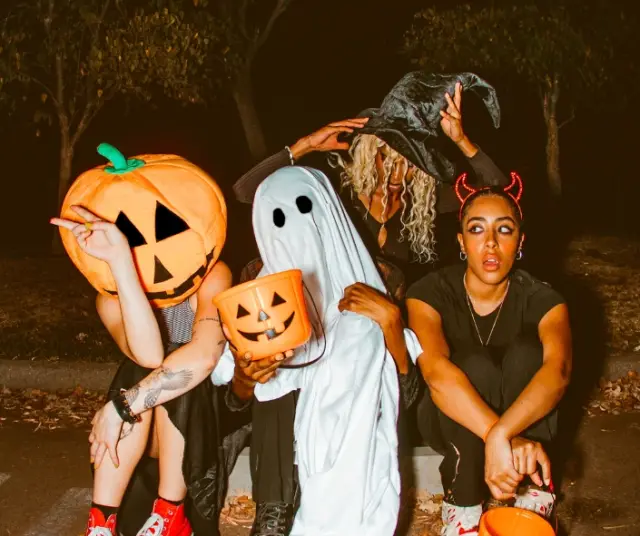Halloween, one of the most anticipated and exciting festivities of the year, has managed to find its special place in Colombia. Although traditionally associated with Anglo-Saxon culture, Halloween has conquered the hearts of many Colombians, becoming a celebration full of fun, creative costumes, carved pumpkins, and delicious sweets.
History and origin of Halloween
Halloween has its roots in an ancient Celtic holiday called Samhain, which marked the end of summer and the beginning of winter in the northern hemisphere. Over time, the celebration was adopted by the Romans and later merged with the Christian holidays of All Saints' Day and All Souls' Day. The tradition was brought to North America through European migration and became popular in the 19th century.
The arrival of Halloween in Colombia
The arrival of Halloween in Colombia occurred mainly through the cultural influence of the United States . As globalization advanced and American movies, television series, and music spread, Halloween began to capture the attention of Colombians and aroused their curiosity about this festivity.
In the 1990s, horror movies and television shows featuring Halloween celebrations became very popular in Colombia . Colombian youth and adults were drawn to the idea of dressing up, decorating their homes with spooky themes, and participating in festive events. Furthermore, international trade also played an important role in the introduction of Halloween in the country. Stores and malls began importing Halloween-related products such as themed costumes, decorations, pumpkins, and candy. The availability of these products made it easier for Colombians to immerse themselves in the celebration and feel more familiar with it.
It is important to note that, although Halloween came from the United States, its adaptation in Colombia has been unique. Colombians have incorporated their own traditions and customs into the holiday, fusing it with aspects of their local culture and mythology . This has allowed Halloween in Colombia to have its own identity and to distinguish itself from celebrations in other countries.
In addition, the acceptance and popularity of Halloween in Colombia is also due to its playful and festive nature. People enjoy the chance to dress up, get creative with decorations, participate in contests and parades, and share fun times with family and friends. The joy and excitement surrounding Halloween have contributed to its growth and entrenchment in Colombian culture.
Celebrations and customs
On the night of October 31, the streets of many Colombian cities and towns are filled with people dressed as horror characters, superheroes, princesses, and other popular characters. Costume parades and pumpkin carving competitions are common in many towns. Theme parties are also organized in homes, schools and shopping malls.
One of the most beloved traditions in Colombia is the "trick or treat" (sweet or mischief), where children in costumes visit neighboring houses asking for sweets. Many Colombian families prepare to welcome the little monsters and witches by filling their bags with goodies and decorating their homes with spooky lights and decorations.
Halloween in Colombia has also incorporated elements of the local culture. For example, some people include traditional Colombian sweets instead of the typical caramels. In addition, local versions of horror characters have been created, such as " Llorona " or " Sombrerón ", which are part of Colombian legends and myths.
Regionalisms in the celebration of Halloween
Even though Halloween is celebrated across the country, there are regional differences in the festivities. For example, in the city of Cali the "Desfile de Calaveras" is held, an event that mixes the tradition of Halloween with the celebration of the Day of the Dead. In Medellín, costume contests and pumpkin decoration exhibitions are held.
In the Caribbean Coast region, Halloween takes on a festive atmosphere and mixes with the traditions of carnival, with colorful parades and music. On the other hand, in rural areas of the country, rituals and ceremonies are held in honor of the deceased, which are intertwined with the celebration of Halloween.
Halloween has found its place in Colombia as a joyful festivity full of creativity. Although originally a foreign tradition, Colombians have embraced Halloween and enriched it with their own culture and traditions. The celebration of Halloween in Colombia demonstrates the ability of people to embrace and adapt festivities from different parts of the world, creating a sense of community and fun. Halloween continues to evolve in the country and will surely continue to be a long-awaited and enjoyed celebration for many years to come.
